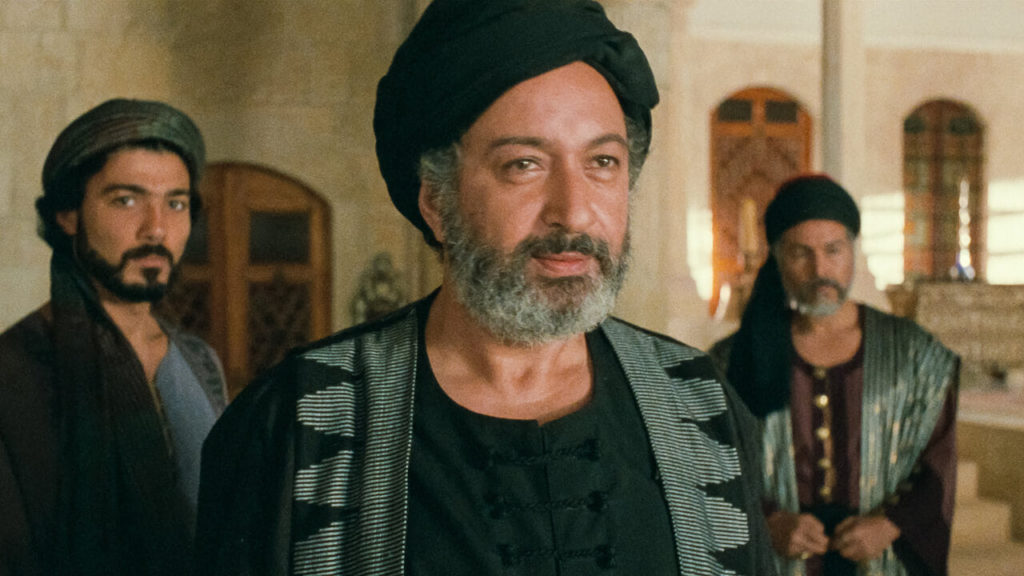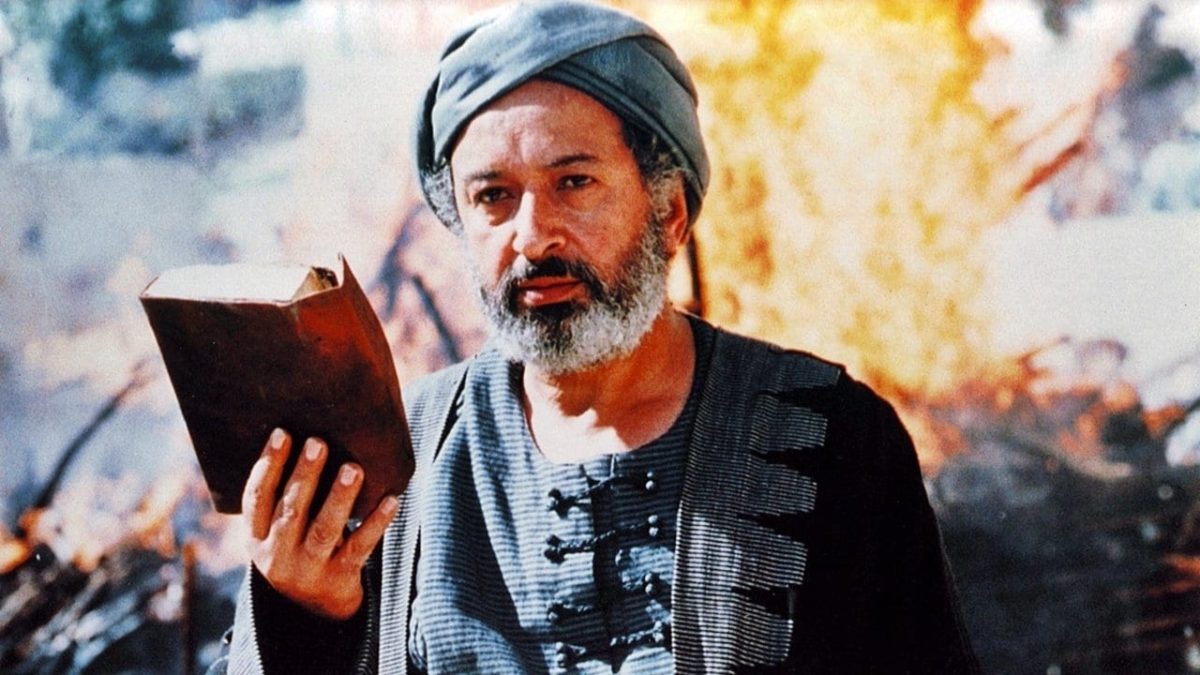It is refreshing to watch a movie about ideas. The Egyptian/French film Destiny is about ideas on two levels. First, it investigates several ideas from different angles: especially, the ways that religious radicalism can infect politics in the face of good, rational actors, and the dangers that poses for healthy, equitable governance. Many of the ideas it explores work as commentary on current events. Director and co-writer Youssef Chahine certainly experienced these concepts firsthand as a liberal Christian voice in conservative Muslim Egypt, and they’re splattered across the Washington Post headlines every day of the week.
The second level, though, is that this is a movie literally about ideas: their transmission and power and danger. How they inflame the world around them, sometimes physically: Multiple pivotal scenes in the film deal with the burning of books or manuscripts, but the memetic power of ideas and philosophies carrying on via the relentless work of the intellectually curious.
Perhaps the most striking component of Destiny is its setting. Twelfth-century Andalusia is not the most common setting for films, and Chahine captures it with richness and detail. The movie is filled with costumes, song and dance, meals, and religious customs; I have no idea how historically accurate they might be, but they certainly conjure an immersive and unique world not often seen in cinemas.

The film’s centers on the political intrigue surrounding the caliph of Andalusia (Mahmoud Hemida). His top adviser and our main hero is Averroes (Nour El-Sherif), a philosopher and scholar who makes recommendations on policies and justice as well as offering personal guidance; think “Hand of the King” in Game of Thrones or a noble version of Jafar. The caliph’s two sons are on divergent paths: Nasser (Khaled El Nabawy) and Abdallah (Hani Salama). While the former has thrown his lot in with Averroes’ crew of free-spirited thinkers, Abdallah has spiritual wanderlust (and sexual wanderlust, too; the film gives us many hints that part of his unmoored identity comes from his many competing desires and sense of discomfort in social norms).
The troubles are piling up: Christians are knocking on the door to try and take back their land; there’s feuding within the royal court; and a devious band of radicals (helpfully coded by wearing green robes) are stirring up trouble. Thus, the caliph is feeling pressure and losing faith in Averroes, who becomes a strategic political target for the radicals, who hate him for his pro-Aristotle writing anyways. And thus the central conflict turns to whether the radicals can simultaneously stomp out Averroes and his writing while getting close to the king via Abdallah, or whether good reasoning will win out. (The film has an epigram with the line “ideas have wings,” so I’m sure you can guess how it ends.)

Destiny is a talky drama, and on the long side for a movie with so little action. The biggest visual setpieces are a few dance numbers sprinkled throughout that are good enough I could have used a few more. Most of the film is visually straightforward medium shots of people talking, though there are a few interesting compositions, mostly of interiors of the palace or group religious rituals.
By the end of the film, though, you’ll have a strong sense of all the characters and enjoy spending time with them: The vivacious and charismatic bard Marwan (Mohamed Mounir) (my brother and I called him “the people’s champion”), the various royals, the spineless caliph — even bumbling, bad-luck Joseph (Faris Rohama), whose father’s death in France opens the film.
It’s on the dry side and it could have used some editing, but there’s enough to Destiny that’s engaging and thought-provoking that it’s worth a watch.
Note: In addition to joining us on the podcast to discuss the film, my buddy Gavin wrote an excellent overview of the depiction of religion in this film over at Alternate Ending.
Is It Good?
Good (5/8)
Follow Dan on Letterboxd or Twitter. Join the Discord for updates and discussion.


3 replies on “Destiny (1997)”
I ought to check this out sometime; I tentatively like Chahine (The Blazing Sky is a straight-up masterpiece and Cairo Station is at least good, albeit weird, though it feels like that might also be the point that Europe got him aesthetically and narratively, as Blazing Sky had been so beautifully Hollywood, and subsequently iirc he made fully four memoirish movies about being Alexandrian which is not exactly in the same crowd-pleasing category as “Omar Sharif struggles with a gunman amidst pharaonic ruins”). But I generally enjoy thoughtful period pieces.
Re: the musical numbers, it might be just his thing. Maybe all Chahine movies have them. Blazing Sky does, though it be a nourish action thriller, and so does Cairo Station, which is principally about incel sex murder.
I haven’t seen any other Chahine films but this is incentive for me to look up Blazing Sun and Cairo Station
And of course by Blazing Sky I mean Blazing Sun (B-Sky was an alternate title). The Arabic title is Struggle In the Valley, so you see how they saw a need for some punch-up, though despite (because of) the Egyptian pedigree it doesn’t consider the sun, blazing as we may find it, to be especially interesting as a subject in itself and I don’t believe anyone ever even mentions in passing that it’s hot out.